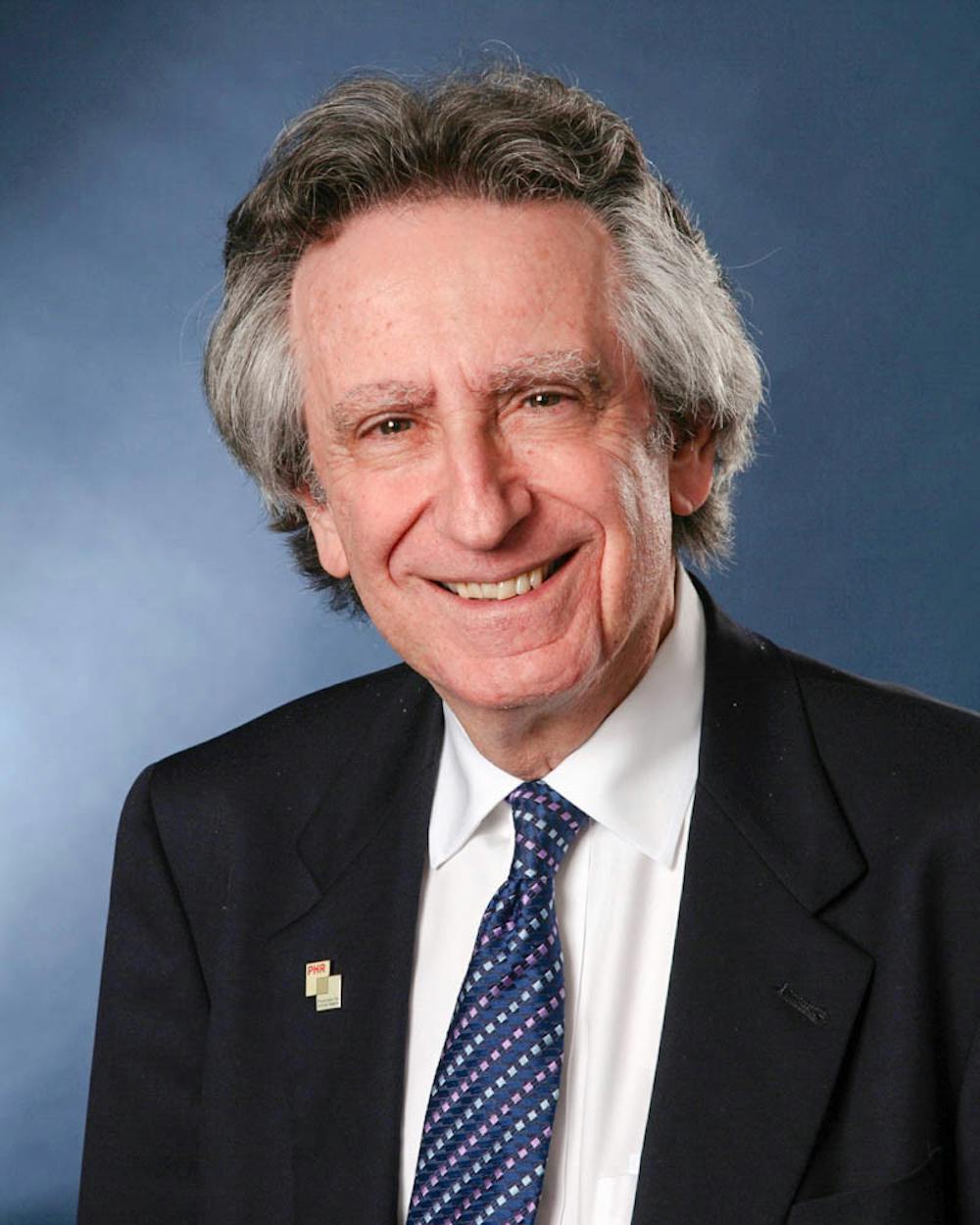Nestled within the 2016 federal spending bill is a brief unrelated provision, or “rider,” which became law in December of 2015. It has no known sponsor and underwent no public debate, yet this portion of the bill could have drastic implications for those born with mitochondrial diseases such as Leigh Syndrome or Alpers Disease, according to researchers.
The rider prohibits the Food and Drug Administration from approving research in which a human embryo is “intentionally created or modified.” This ban encompasses “Mitochondrial Replacement,” a technique in which a donor’s mitochondria are used to replace those in an embryo at risk of developing mitochondrial diseases, said Eli Adashi, professor of medical science and former dean of medicine and biological sciences.
In a commentary published in Obstetrics & Gynecology, Adashi and I. Glenn Cohen, professor of law at Harvard University, wrote that the benefits of MR outweigh its risks, and that research into the technique should be decoupled from the moratorium on editing the genes of human embryos.
Mitochondrial diseases are caused by “faulty mitochondria” in human cells, and estimates suggest they affect as many as 1,000 babies each year. To prevent these diseases from occurring, MR therapy involves substituting these mitochondria in the mother-to-be with those from a healthy donor, Adashi said.
While the technique is still the subject of research, it is “on the precipice of implementation,” Adashi said. In the United Kingdom, the first human trials have been approved for a limited number of women. That number could increase depending on how the trials progress, he said.
Criticisms of modifying embryos come from ethical and religious points of view, which were likely the reasons the rider was included, Adashi said. For one, the Catholic Church objects to in vitro fertilization, which is required to complete MR therapy.
Possible ethical objections to editing genetic data in embryos stem from the notion that genes in a child could be selected, said Arthur Caplan, professor of bioethics at New York University’s Langone Medical Center. “Many people don’t want to cross the line into making heritable changes by engineering,” Caplan said. “They worry about the slippery slope argument: If we let this mitochondrial DNA be repaired by moving genes from a donor, then we’ve crossed the line into making changes in what can be inherited by offspring and down the generation, and that’s going to lead us to eugenics.”
However, Caplan doesn’t believe these criticisms should keep research into MR therapy from progressing, citing the fact that mitochondrial DNA does not have a large impact on traits.
“I understand that people are worried that something might happen that they don’t expect by manipulating the mitochondria,” Caplan said. “But I think we have enough experience to let the procedure be tried.” The procedure would not be common, and the amount of DNA being transplanted is small, he said.
“This is not an anti-life procedure. This is (a) pro-life procedure. That’s probably the most important thing,” Adashi said, adding that “the idea is to cure disease and bring healthy children into the world. That seems to most observers to be a fairly legitimate, ethically appropriate and religiously acceptable approach.”
“It’s indescribable, the suffering these children must go through,” Adashi said. Symptoms vary for those whose mitochondria do not function properly, depending on where the problem arises. “If it’s muscle, you can’t move; if it’s brain, you can’t think; if it’s heart, you can’t survive very long,” Adashi said, adding “there’s no cure, unfortunately. So the only approach to this is prevention, which is what mitochondrial replacement is.”
Adashi and Cohen believe the law to be misinformed rather than deliberate in its prohibition of MR therapy. “It was aimed more likely at germline gene editing, and MR (therapy) got swept up in that because of the way the rider was written,” Cohen wrote in an email to The Herald.
An expert in FDA law and “medical tourism,” among other areas, Cohen wrote that the United Kingdom’s promotion of broad public debate and consultation is unusual in the United States, but would be a welcome addition. “In the absence of U.S. regulatory approval, we will likely see more medical tourism for these services,” Cohen wrote, pointing to a case in which a Jordanian family underwent the procedure in Mexico.
Adashi and Cohen state that making the case before Congress is important in alerting lawmakers to this issue. “Nothing will happen unless some activism takes place,” Adashi said.
“By putting those parents in this position, the law essentially dooms up to 1,000 children to a life that is both severely compromised, and often very short,” Adashi said.





